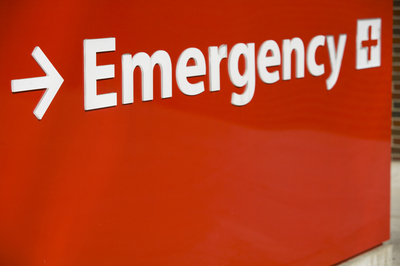What is Sudden Cardiac Arrest?
Sudden Cardiac Arrest (SCA) is a medical emergency that occurs when there is an abrupt loss of heart function. When the heart loses function, it is no longer able to pump blood to the rest of the body, in which 95% of the time, results in death. SCA differs from a heart attack. (A heart attack occurs when there is an interruption of blood flow to the heart, which deprives the heart muscle of necessary oxygen.) During SCA, the electrical impulses in the heart become either rapid (ventricular tachycardia, aka "VT"), or chaotic (ventricular fibrillation, aka "VF"), or both. These irregular heart rhythms are called arrhythmias, which prevent the heart from pumping blood to the brain and other vital organs, and leads to an immediate cessation. Death can be prevented by taking certain measures and by being prepared.
Signs and Symptoms
sudden collapse
no pulse
no breathing
loss of consciousness
Treatment
By being fully prepared and trained for SCA, death can be prevented. For any chance of recovery, immediate cardiopulmonary resuscitation (CPR) and the use of an automated external defibrillator (AED) are essential for someone who is experiencing SCA. Although CPR is an important link in the survival process, it cannot save someone from SCA. Only defibrillation has the potential to save a victim's life.
What is defibrillation?
Defibrillation (use of an AED) consists of sending an electric shock to the affected heart, in order to terminate the arrhythmia, and restore natural rhythm. Because the diagnosis of treatable rhythms is automated, the advantage of AEDs is that they allow lay responders or bystanders to successfully conduct the procedure with little or no training at all. These devices are fail-safe and will not cause injury to the user, nor deliver a shock if not required.
Survival rates can be as high as 90 percent if the victim's heart is defibrillated within the first minute after he/she collapses. The chance for survival drops 10 percent every minute defibrillation is delayed. If defibrillation is not completed within 10 minutes, the victim's chance of survival is less than 2 percent. If his/her heart is not re-started within the first 4-6 minutes after the arrest, he/she may sustain irreversible brain damage.
The quicker treatment is delivered, the greater the chances for survival.
Speak with a Heart Smart Tech Today! 800.422.8129
Copyright 2010. Heart Smart Technology. All Rights Reserved.
Trusted Worldwide.
Heart Smart is pleased to offer special pricing for:
schools
churches
military
corporate
veterans
responders
senior citizens
children at risk
medical professionals
CALL NOW! or Click Here
(to request a Quote)
AED Defibrillators
AED Accessories
AED Package Specials
SCA News and Info
Rescue Training
110% Low Price
Guarantee
30 DAY
Money Back
FREE
Shipping
800.422.8129
Request a Quote and save HUNDREDS!
OR CALL (800) 422-8129 TODAY!



